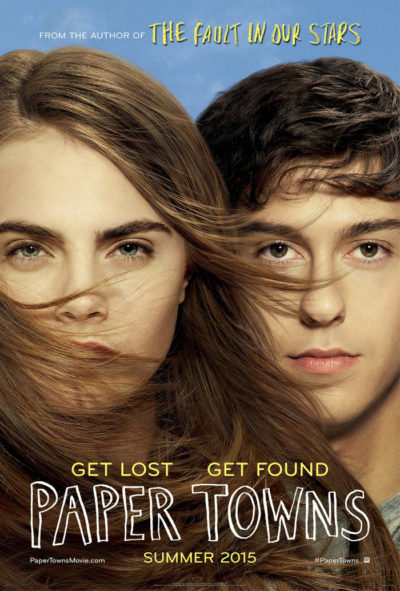A few days ago, I went to see Paper Towns. A few days before, I read the book. I did both because, as those who know me are aware, I’m a big fan of John Green’s The Fault in Our Stars (not so much a fan of the teenage premarital sex, but I ignore that part). The Paper Towns movie, however, was not as good as The Fault in Our Stars. It wasn’t even as good as the book, which also wasn’t as good as The Fault in Our Stars.
Honestly, Paper Towns felt more like a mediocre sequel than a standalone film. They didn’t seem to have made it because they read the book and said “Oh my goodness, this would be a great movie!” They seem to have made it because they saw the success of The Fault in Our Stars and said “Quick, let’s see what other books John Green has written that we could make a movie of so we can have more success.” Because Paper Towns, honestly, was not very well suited to a film adaptation. Partly because it contains a lot of inner monologue that makes up the crux of the story, and partly because due to the nature of the theme, it does a lot of back and forth and includes a lot of false starts and red herrings. They eliminated a lot of these in the film to try to streamline the plot, and in the meantime lost a lot of what made the book good. The one thing that was better about the movie is that they significantly reduced the crudeness and language from the book.
But somewhere in all the hacking and rehashing and condensing, the story lost much of its meaning.
After having read two John Green books, it’s not hard for me to understand why he consistently turns out bestsellers. I mean really, teen romances are a dime a dozen. Why do these rise above the rest?
It’s because they’re not romances.
Sure, they center around teen romance, but that’s not what they’re really about. Somewhere in the midst of the high school insanity, coming-of-age struggles, and teenage fornication floats a deeper level of meaning that’s lacking in even most adult fiction these days. You don’t leave The Fault in Our Stars thinking about how hot Augustus Waters is (though I’ve no doubt you can’t throw a stick without hitting fifty teen girls who have a crush on him), you leave it thinking about life, and real love, and how we use our time, and what our perspective is on every moment. And you don’t leave Paper Towns thinking of Margo Roth Spiegelman as much as you leave it pondering the way we see people and how little we really know about what’s inside someone else’s soul.
This is why John Green’s books rise to the top of the cultural milk-glass of current teenage fiction. Because despite how shallow we’ve become and how much meaning we’ve siphoned from our lives, we still long for deeper truths. John Green does a beautiful job of presenting meaning in powerful ways.
If only he could do it without so much sex and swearing.
